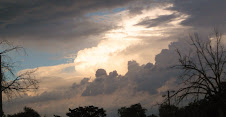.
just five days ago on the 28th of november, world renowned french anthropologist claude levi strauss turned an astounding one hundred years old. best known for his ground-breaking contributions to cultural theory and structuralist philosophy, strauss lived with and intimately studied the tribal practices and paradigms of indigenous people throughout many secluded regions of the world. from his first hand experiences and observations, strauss determined that family and community, art and ritual, and magic and mythology are just as important as science or literature in the course of human cognitive development. he further insisted that all people have similar mental structures and ways of reasoning, because all people want to structure the world to make order out of what is ultimately and reducibly chaos. having devoted his life to understanding and exposing new ways of thinking, valuing, believing and doing, levi strauss actively convinced the world that there is no such thing as a primitive or “uncivilized” people, because all people and cultures respond to a lifetime of randomness and instability in essentially the same way.
yes, life is wildly unpredictable, to say the least. in the period of the last twelve months, i have been diagnosed with epilepsy, quit my teaching job mid-semester, ended a committed relationship, bought a house, and fallen in love with an older woman, vinyasa yoga, and the spontaneous scheme of moving out of the country for as long as i can last. when i examine my recent past for indications that such significant changes were ever imminently looming, i come up with only a staggering sense of surprise, and a cautious surrender to the course of my apparently wandering life. the past is an amalgamated story, and the future is a screaming secret, and the present is just noticing, to any varying degree.
immediately, i confess it is likely that i won’t remember what i was supposed to. i won’t remember a thousand practical teaching strategies for advancing the literacy development of young people. i won’t remember the endless list of educational researchers and theorists who are responsible for so many critical contributions to the field of literacy acquisition. i won’t remember the pure and eager world of School as it was presented through collections of neatly sequenced chapters in unproblematic texts. i simply don’t learn in this way. it is not my world.
but i will remember what awakened me. i recall carol lee fondly, who thrilled me with her insistence that students whose discourse patterns differ from the dominant, formal register of mainstream school are indeed employing intricately structured and highly complex language forms, which have great and untapped merit. i appreciate james baldwin, who suggested that heteroglossia is an invariable form of interaction in classroom settings by which significant student knowledge is exposed, and that teachers should try listening to what students are saying if we expect to penetrate their worlds with “curriculum”. brian cambourne reminded me that although i should not presume to control, command or even necessarily manage the delicate and dynamic learning process, i can establish conditions that make powerful learning possible. i reflect on kylene beers’ nostalgic and emotional letters to her former struggling student, george, and welcome her defense of literacy as a transactional, aesthetic, critical, and social process. and i especially cherish jean lave’s explanation of learning as apprenticeship, and her analysis of how teaching instruction and formal schooling may impede the human learning process in its natural, socially situated unfolding. lave taught me that it is possible –indeed vital– to reimagine School in the interest of real learning that aligns with students’ sense of Self, and extends to and transforms the cultural practices of their lives.
finally, and to a greater degree and sense of gratitude and than i can commit to any aforementioned authors or their assorted conceptions of “good” teaching and learning, i will remember the mentorship of phill(ip) white. in our first class together, phillip witnessed me defy conceptions of educational research, scientific knowledge, and schooling, and was not startled. he saw my besieged inner dialectic, and challenged me to consider whether my ideals were grounded in “a disciplined body of knowledge, or some vague sense of anti-intellectualism”. admitting that both were true, i remembered how much i had to learn, and sought phillip out with overzealous dedication. by his willingness to engage, phillip supported me to discover my own contradictions, develop my first mantra (the title of this post), and locate other educators who are thinking and writing about philosophies i am most attached to and struggle around as a teacher and learner. through our talks, i was able to locate myself in these difficult months by seeing that my questions and sense of fragmentation do not prove that i am lost along some extraneous fringe of master teaching, as i suspected, but at the essential heart. this is the kind of contemplative, relational and powerful learning that i believe matters, and the kind of teacher i aspire to be.
as lave maintained, learning is concerned with shifts in our very identities, and is socially situated in the “fundamental project of life”. against my early suspicion, i have grown this semester in ways that were not dominated by the voices of children, marked by the self-importance of grades, or bound by the feigned mantle of solid classroom walls. my learning is shaped by reflection, which may be the very kind of ritual and art that levi strauss insists, after one hundred years of sharpened noticing, keeps us grounded in living.
